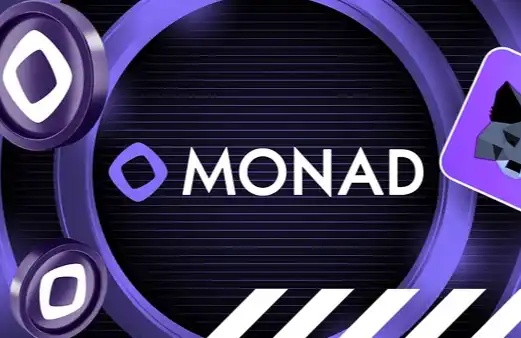Understanding Zeus Network: Bringing Bitcoin liquidity to Solana network (with participation tutorial)
After several days of voting, the cross-chain communication protocol Zeus Network became Jupiter’s first Launchpad project. On April 2, according to official news, the Zeus Network token ZEUS will be officially listed on the Jupiter LFG Launchpad on April 4. To this end, the Jupiter LFG Launchpad official website has been officially launched.
Zeus Network hopes to connect Solana and Bitcoin through an open communication layer. The main goal of the project is to leverage the power of Bitcoin as an asset and bring it to high-performance Centralized transaction chain - on Solana. Zeus Network was created to overcome the challenges of unreliable encapsulated assets like soBTC and the lack of strong native assets for trading. The solution proposed by the creators, zBTC, will benefit from support from various ecosystems, demonstrating the collaborative spirit of the blockchain community.
At the core of Zeus Network is a crucial permissionless layer that combines the fast transaction capabilities and scalability of Solana with the security and trust of Bitcoin and liquidity. This synergy provides developers with the opportunity to build diverse applications and services, promoting frictionless connectivity between Solana and Bitcoin. This unique integration promises to pave the way for a range of possibilities, from high-performance decentralized applications to efficient and secure financial services.

Related reading: "How Zeus Network, supported by Solana and Stacks, is reshaping the boundaries of blockchain》
Details
The architecture consists of two main components: the Zeus node and the responsible Solana Virtual Machine (SVM) for state-related functions. Zeus nodes include key services such as peer-to-peer, signing, broadcasting and validator registration, which contribute to the decentralization and efficient operation of the network. In SVM, different programs further enhance its functionality: the Validator Registration Program facilitates the registration of validators; the Proposal Management Program manages the processes related to proposals; and the Adjudicator Program oversees adjudication activities.
This structured framework ensures seamless integration and functionality of the Zeus network, emphasizing peer-to-peer communication services and state-related programming elements within the Solana Virtual Machine.

The validation process within the Zeus network operates on a decentralized and permissionless group model, unlike a federated notary system. To become a validator, an individual needs to run a node, which is a requirement for maintaining private keys and signing capabilities. In addition, the process involves staking SOL or LSD-SOL, with LSD preferred, to enable stakers to contribute to the Proof of Stake (PoS) consensus and two-way peg (2WP) mechanism. Stakers are also required to register on the Validator Registration Program. The security framework relies on an overcollateralization design that addresses potential vulnerabilities through financial slashing measures, enhancing the robustness and resilience of the validation system.

The Zeus node system consists of several integral components, including off-chain services such as peer-to-peer, broadcast, signature (with signature aggregation), and a dual-function registry service that can run both on-chain and off-chain.
To enhance the scalability of the system, possible modifications include the implementation of alternative signature algorithms, the integration of broadcast service adapters to support different chains such as Bitcoin Layer 2, EVM, MoveVM, and the development of on-chain registry programs or smart contracts in various programming languages such as Solidity, Move, etc.
Through this multifaceted approach, adaptability and interoperability are ensured, allowing the system to grow and integrate with different blockchain ecosystems.

In the envisioned protocol workflow, serialized Bitcoin and Solana transactions are systematically stored in the proposal manager. Validators then retrieve these proposed transactions from the Solana blockchain.
The consensus mechanism for these proposed transactions involves a unique process where validators focus solely on validation, separate from on-chain transaction proposals. Validators implement a threshold signature mechanism, which the Bitcoin taproot leverages Schnorr signatures. This concept seamlessly extends to the Solana Ed25519 signing algorithm. Off-chain signature aggregation provides an efficiency improvement over on-chain voting, facilitating the smooth broadcasting of signed transactions to Solana. Additional layers of protection, including fraud proofs and assumptions about honest validator behavior, strengthen the consensus process. After consensus is reached, a challenge period is introduced, a topic that will be further elucidated in the subsequent security section.
This network infrastructure is designed to accommodate different applications and can serve as an illustrative example of its potential applicability, especially in a bridge-like environment.
Roadmap
The team behind Zeus Network is enthusiastic about building a complete and powerful dApps network on top of Zeus. The roadmap outlines several ambitious plans, including:
1. APOLLO Chapter: Staking/Wrapping Bitcoin with Solana Yields, introducing a native and permissionless wrapper that redefines cross-chain interoperability by circumventing traditional bridge mechanisms.
APOLLO, as the first dApp for native BTC staking, embodies the network's latest initiative. It runs under the Zeus consensus, ensures trustless governance through validator participation, and includes a program structure that runs on the Solana Virtual Machine. APOLLO aims to handle cross-chain liquidity and decentralized liquidity processing with a firm commitment to the principles of decentralization, ensuring smooth operations and providing opportunities to make money within the ecosystem.

2. ARTEMIS Chapter: Introducing the liquidity part of the bribery system to enhance the functionality and user engagement of the network.
3. Future plans: including native Bitcoin collateralized stablecoins, native and cross-chain NFT tools, and lending mechanisms between all Bitcoin layers and Solana, as well as Bitcoin Layer 2 integration.
Team
Founder Justin Wang was born in Taiwan, grew up in Canada, and graduated from UBC. Founded a successful VPN business in Dubai in 2014, mainly targeting the Saudi market. Exited in 2016 for $3.5 million in equity. Founded "dAppio Lab" in 2020 to lead advanced innovative technologies in Solana and other blockchain ecosystems.
Lead Architect Jim Ironaddicteddog is a blockchain professional with a diverse background who has contributed to multiple projects. Currently an architect at Zeus Network, developing the first permissionless communication layer for Solana and Bitcoin. Prior to this, Jim played a key role in the development of Solana's non-EVM community in Taiwan at Gen3, and served as a technical leader and project manager at dAppioLab, leading the development of dAppio Wonderland. Previously, Jim worked as a researcher at BSOS and Unitychain. While a contributor to the Taipei Ethereum meetup, I organized meetups, study groups, hosted conferences, and received a job recommendation from Vitalik.
Chief Scientist Dean is a professional developer from Australia, specializing in software, hardware, and blockchain. Previously lived in Hong Kong, has also spent considerable time in Taiwan, and is fluent in Mandarin. With 7 years of experience in the Bitcoin blockchain, he has won hackathons and built multiple successful companies.
In addition to the team members, Zeus Network is also backed by early angel investors such as Solana co-founder Anatoly, Mechanism Capital founder Andrew Kang, and Stacks co-founder Muneeb Ali, Zeus Network is well-positioned to connect Solana and Bitcoin. Through its ambitious roadmap and strong community engagement, Zeus Network aims to redefine the landscape of decentralized finance and blockchain interoperability.

How to participate in the public sale?
Zeus Network focuses not only on technology, but also on community and governance. With the upcoming launch of $ZEUS tokens on the Jupiter LFG Launchpad, the project recognizes the decentralized governance rights of the ZEUS community and Jupiter holders. This launch is expected to attract more than 300,000 eligible community members, of which 3% of the total $ZEUS token supply will be allocated as an airdrop to eligible participants.
Eligible participants include: Participants who voted in Jupiter's "LFG Voting Round 1!"; Participants who participated in Zealy missions and earned Zealy XP; Owners of Dappie Gang NFTs.
$ZEUS tokens will be launched on the first Jupiter LFG Launchpad at 9pm (Singapore Standard Time) on April 4. How to participate in the public sale?
1. Go to the Jupiter Launchpad page
You can see the Launch pool status. The initial price is 0.3u, the highest price is 0.85u, the total number of tokens in the pool is 50M USD, and the curve is 1.2.

It is worth noting that Zeus Network's Launch pool uses the Intuitive Launchpool Modelling (ILM intuitive launch pool modeling) mode. ILM is a new way to organically launch projects and tokens. Part of the platform is Meteora's DLMM Pool, which provides unilateral liquidity in a way that builds early liquidity support and allows organic liquidity to be guided. At the end of the launch period, liquidity shifts from the DLMM pool to organic liquidity across venues.
2. Preset limit orders in advance
Preset limit orders or DCA in advance to obtain tokens at launch. New tokens are more volatile, and a maximum price limit is set when trading. The token's initial price is 0.3 USDC.

Note: When competition is high, DCA may not execute initially. The larger your order, the greater the chance of execution. USDC orders have a higher chance of success. The priority fee is only used to create new orders and does not improve your chances of being filled.
Welcome to join the official BlockBeats community:
Telegram Subscription Group: https://t.me/theblockbeats
Telegram Discussion Group: https://t.me/BlockBeats_App
Official Twitter Account: https://twitter.com/BlockBeatsAsia


 Forum
Forum Finance
Finance
 Specials
Specials
 On-chain Eco
On-chain Eco
 Entry
Entry
 Podcasts
Podcasts
 Activities
Activities
 OPRR
OPRR









